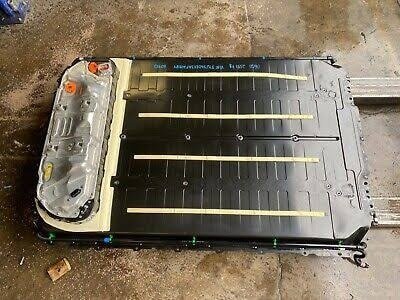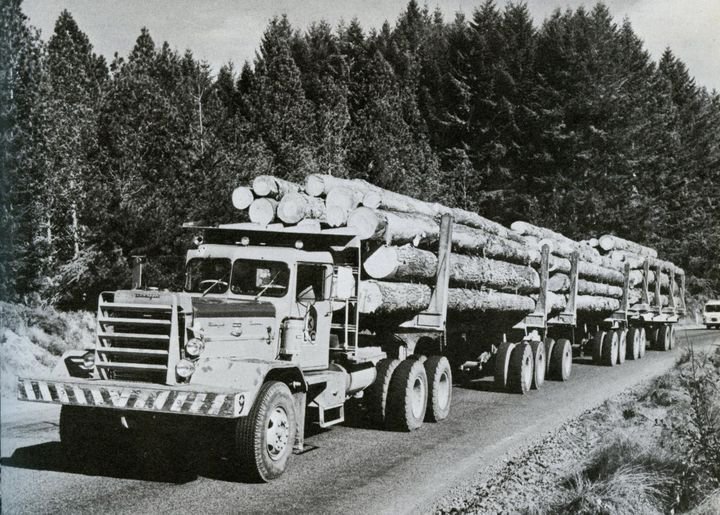

igor
-
Posts
19342 -
Joined
-
Last visited
-
Days Won
9
Posts posted by igor
-
-
voiture sans permis?
-
But is it flat six powered?
-
The look on your face in that first start vid said so much. Now we all just want to see it driving.
-
 1
1
-
-
From Sustainability NZ on Facebook. May or may not contain truth.
Balancing perspectives on electric vehiclesThe topic of electric vehicles can be polarising but it's unhelpful to look at complex matters in polar terms. One of the greatest misconceptions is that electric vehicles are emissions free and environmentally friendly despite their benefits. Here are some figures to consider.This is a Tesla Model Y battery. It takes up all of the space under the passenger seating of the car.To manufacture it requires:--10 tonnes of rock to extract the Lithium-- 2.7 tonnes of nickel ore-- 10 tonnes of copper oreYou must move 225 tonnes of soil to obtain:-- 12 kilograms of lithium-- 14 kilograms of nickel-- 22.5 kilograms of manganeseTo manufacture the battery also requires:-- 200 kilograms of aluminum, steel and/or plastic-- 50 kilograms of graphiteThe earthmoving equipment commonly used to obtain the essential minerals consumes almost 1,000 litres of diesel in 12 hours.Once the battery is completed and the body, drivetrain, steering, braking, and suspension components are made from steel, and the interior finished, finally you have a vehicle that itself is considered a zero emissions car.Presently, the bulk of the necessary minerals for manufacturing the batteries come from China or Africa. Much of the labour for extracting the minerals in Africa is done by children. If we buy electric cars it's China who profits most and as we know the longer the supply chain the less visibility we have over human and environmental ethics.This Tesla Model Y OEM battery (the cheapest Tesla battery) is currently for sale online for (NZ)$8,100 not including shipping or installation. The battery weighs over 450 kilograms so shipping costs are considerable.The cost to replace Tesla batteries is:Model 3 -- $22,715+ (Car price $66,900)Model Y -- $8,110–$16,225 (Car price $67,900+)Model S -- $21,000–$32,450 (Car price $74,990)Model X -- $21,000+ (Car price $135,425)* Car price is new, before rebateIt takes SEVEN years for an electric car to reach "net-zero" CO2 emissions. The life expectancy of the batteries is 8-10 years (average).Only in the last three years do you begin to reduce your transport carbon footprint. Then the batteries have to be replaced and you lose all the offset you made in those three years.In addition, electric cars are heavier than cars powered by internal combustion engines and cause more wear and tear on tyres and roads. They also increase the demand for electricity, much of which in countries like China and India is generated by mainly coal fired power stations. New Zealand is fortunate in this regard with approximately 87% of electricity generated from renewable sources.The intention of sharing this information is not to discourage anyone from purchasing a Tesla or other electric vehicle but to lend perspective to how wasteful the sole ambition of net zero motoring is and how unsustainable replacing the majority or even large proportions of the current fleet of petrol and diesel vehicles. Electric vehicles certainly do have a place in the market, particularly for short, urban trips and these can be even more sustainable if the vehicle is recharged using off grid or off peak power.There is a concerted, global push to end private vehicle ownership and part of that is replacing petrol and diesel vehicles with electric vehicles in the interim.The most truly sustainable way to retain personal transport is to hold onto existing vehicles, maintain them well, and plan ahead to reduce kilometers traveled. Ensuring that engines are tuned for efficiency has a huge effect on fuel consumption as well as emissions reduction and will usually give better performance.The technology is improving all the time and there is ongoing research into sustainable recycling of batteries to reuse the minerals and materials. If more renewable energy becomes available and battery technology improves, electric vehicles will have a more realistic position in the market.It's not a matter of electric vehicles or internal combustion engine vehicles but a rational a pragmatic approach to what works in the real world.-
 2
2
-
 3
3
-
-
Oh, that's so cute.
-
 1
1
-
-
Does it have the eight speed super-shift?
-
 1
1
-
-
My phone is too dumb to do apps.
-
 1
1
-
-
-
10 minutes ago, cletus said:
plates in wof inspections, to make sure they are readable
Has this not always been a requirement?
-
That's an insane amount of cameras.
-
1 hour ago, Sc@ Chi said:
Do diesel motorbikes
...exist?
-
For comparative purposes many years ago when I was heating my house with a coal fire my Falcon wags and a 6x4 caged trailer went 1.8 ton on the coal depot weighbridge. Note that is the combined weight of the tow vehicle and the empty trailer.
-
 2
2
-
-
-
Annually, or do you have a huge lawn?
-
55 minutes ago, cletus said:
"Transitioning EVs and plug-in hybrids to RUC is the first step in delivering on the National-ACT coalition commitment to bring all vehicles into the RUC system."
If this is accompanied by a corresponding reduction in the excise tax on petrol it could be a very good thing, especially for boaties and other non-road users of petrol.
-
 5
5
-
-
14 minutes ago, peteretep said:
I wish they put RUCs in the rego instead of having them separate.
Too much variability of mileage between vehicles/owners for this to work equitably.
-
 4
4
-
-
Just read this whole thread. An amazing concept that really deserves to be finished.
-
If you swapped in the 1256 engine how many wof guys would even notice?
-
Your next father/son project Bart?
-
The children had a Hotwheels car that alternated between those two shades. Chuck some cold water on it and see what happens.
-
 1
1
-
-
Might as well say Barra mate.
-
Buick/Rover 215 (3.5ltr) V8. Fits easily, has been done before so the knowledge is out there, and due to its alloy block weighs little more than the original iron block four cylinder.
-
 3
3
-
-
-
You can get away with that sort of thing on a commercial vehicle but I don't believe you can with a passenger car. I'm sure some of the wof mechanics on here will be along to confirm or deny that in due course.




a_craw4d's shopping trolley go kart
in Other Projects
Posted
Pop a wheelie mate.